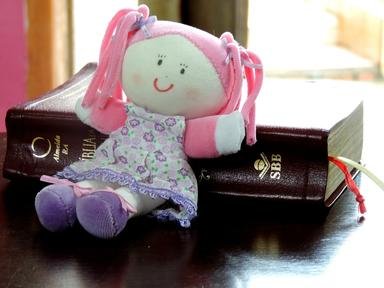Quiz Answer Key and Fun Facts
1. Who laughed when she heard she would be with child, even though she was already ninety years old?
2. The Pharaoh of Egypt ordered the killing of all very young Hebrew children. Which child did escape this mass murder because he was sent floating on the Nile?
3. David and Bathsheba had a kid before they married, but this kid died. Who was their *second* son, and successor of David?
4. Two women who had just given birth came before Solomon after one of the kids died. How did Solomon identify the true mother of the living child?
5. Which prophet rescued the kid of the Shunnamite woman from death?
6. "The wolf also shall dwell with the lamb, and the leopard shall lie down with the kid; and the calf and the young lion and the fatling together; and a little child shall lead them." Which prophet described the coming of the Messiah having these marvellous consequences?
7. Who ordered the murder of all kids under two years old in Bethlehem?
8. Who spoke out the words "Verily I say unto you, Except ye be converted, and become as little children, ye shall not enter into the kingdom of heaven"? (Matthew 18:3)
9. Whose kid was cured by Jesus even if Jesus did not see the kid?
10. Who wrote "My little children, these I write unto you, that ye sin not"?
Source: Author
JanIQ
This quiz was reviewed by FunTrivia editor
NatalieW before going online.
Any errors found in FunTrivia content are routinely corrected through our feedback system.
